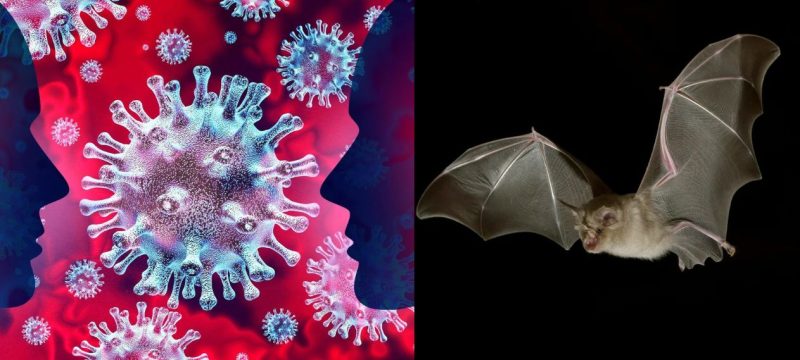Chinese scientists have discovered a new bat coronavirus, HKU5-CoV-2, which has the potential to infect humans, sparking renewed concerns over zoonotic diseases.
The study, led by virologist Shi Zhengli at the Guangzhou Laboratory, was published in the scientific journal Cell. The virus, found in bats in China, exhibits similarities to SARS-CoV-2, particularly in its ability to use the ACE2 receptor to enter human cells. However, researchers emphasize that its capability to infect humans remains limited.
Read more: New Virus Outbreak in China: All You Need to Know!
Key Findings of the Study
HKU5-CoV-2 is a variant of the HKU5 virus, initially detected in Japanese pipistrelle bats in Hong Kong. It belongs to the merbecovirus subgenus, which also includes the MERS virus. The study revealed that, like SARS-CoV-2, this new virus possesses a furin cleavage site, an element that enhances viral entry into human cells.
Laboratory experiments showed that HKU5-CoV-2 can infect human cells that express high levels of ACE2, particularly in intestinal and airway models. Scientists have also identified monoclonal antibodies and antiviral drugs that could target the virus, offering possible treatment options if it ever spreads to humans.
Research Led by China’s ‘Batwoman’
Shi Zhengli, a leading virologist from the Wuhan Institute of Virology, headed the research. Due to her extensive work on bat coronaviruses, she is often referred to as “Batwoman.” She previously faced global scrutiny during the Covid-19 pandemic, as the Wuhan institute was speculated to be the origin of the virus, a claim she has consistently denied. The true origins of SARS-CoV-2 remain unknown.
Should We Be Concerned?
Chinese researchers have downplayed the risks associated with HKU5-CoV-2, stating that it does not bind as effectively to human ACE2 receptors as SARS-CoV-2. The study advised against exaggerating the risk of its spread in human populations.
Michael Osterholm, an infectious disease expert from the University of Minnesota, also dismissed concerns over the study, calling the reaction “overblown.” He highlighted that global immunity against SARS-like viruses has strengthened since the Covid-19 pandemic, reducing the risk of another major outbreak.
A separate study by researchers at the University of Washington and Wuhan University confirmed that although HKU5-CoV-2 can bind to bat and other mammalian ACE2 receptors, its ability to attach to human cells is weak.
The Covid-19 pandemic, which originated in China in late 2019, led to a worldwide crisis. The World Health Organization (WHO) declared it a pandemic in early 2020, and as of February 2025, over 7 million confirmed deaths have been reported, making it one of the deadliest pandemics in history.









